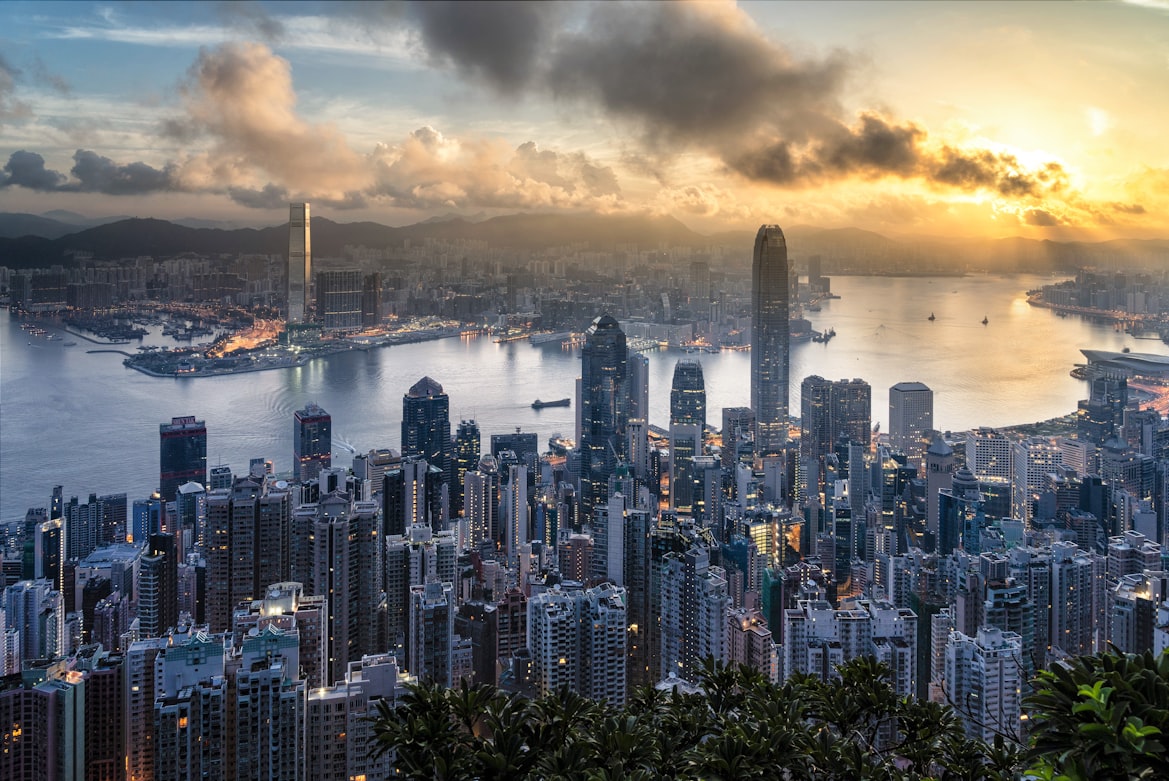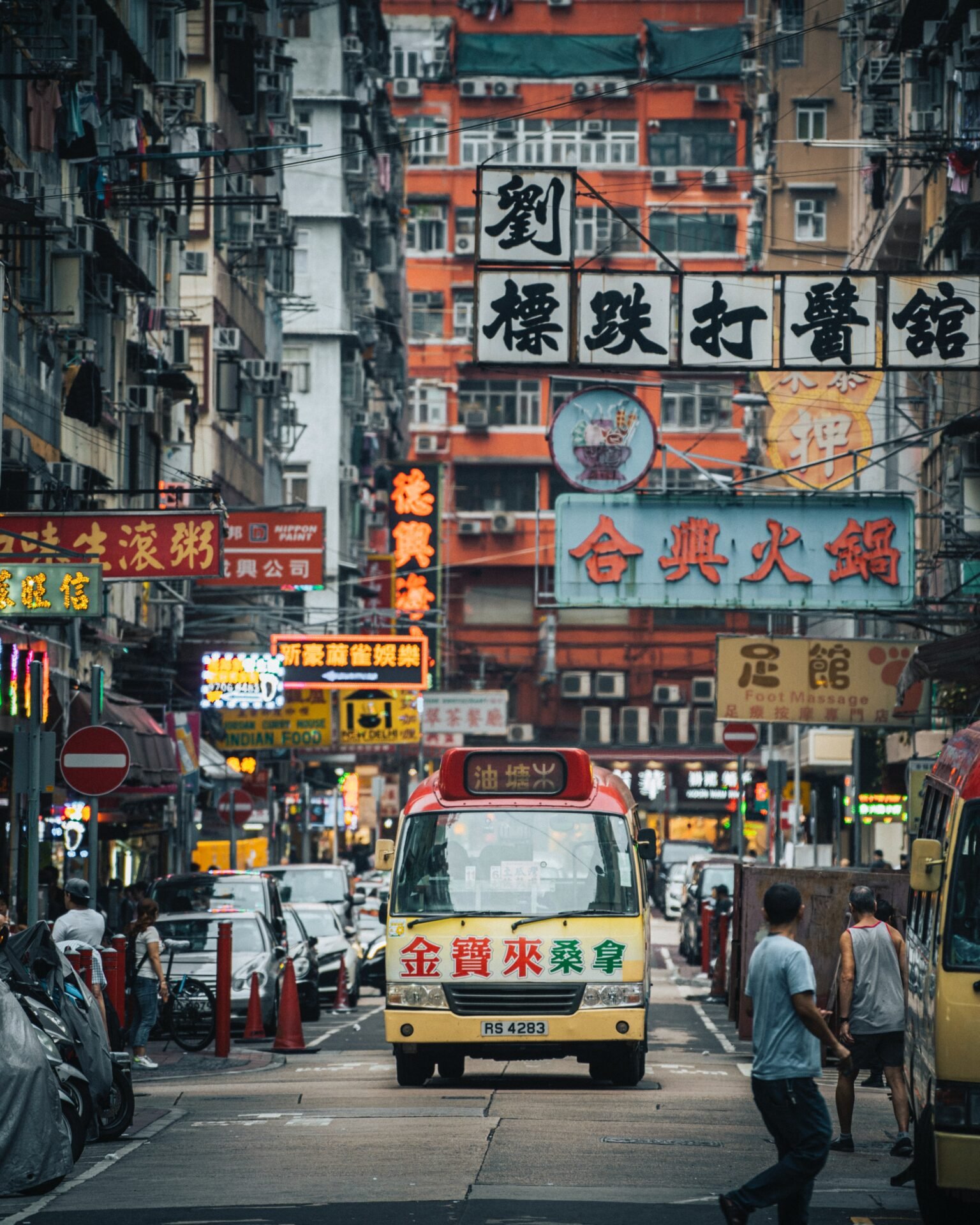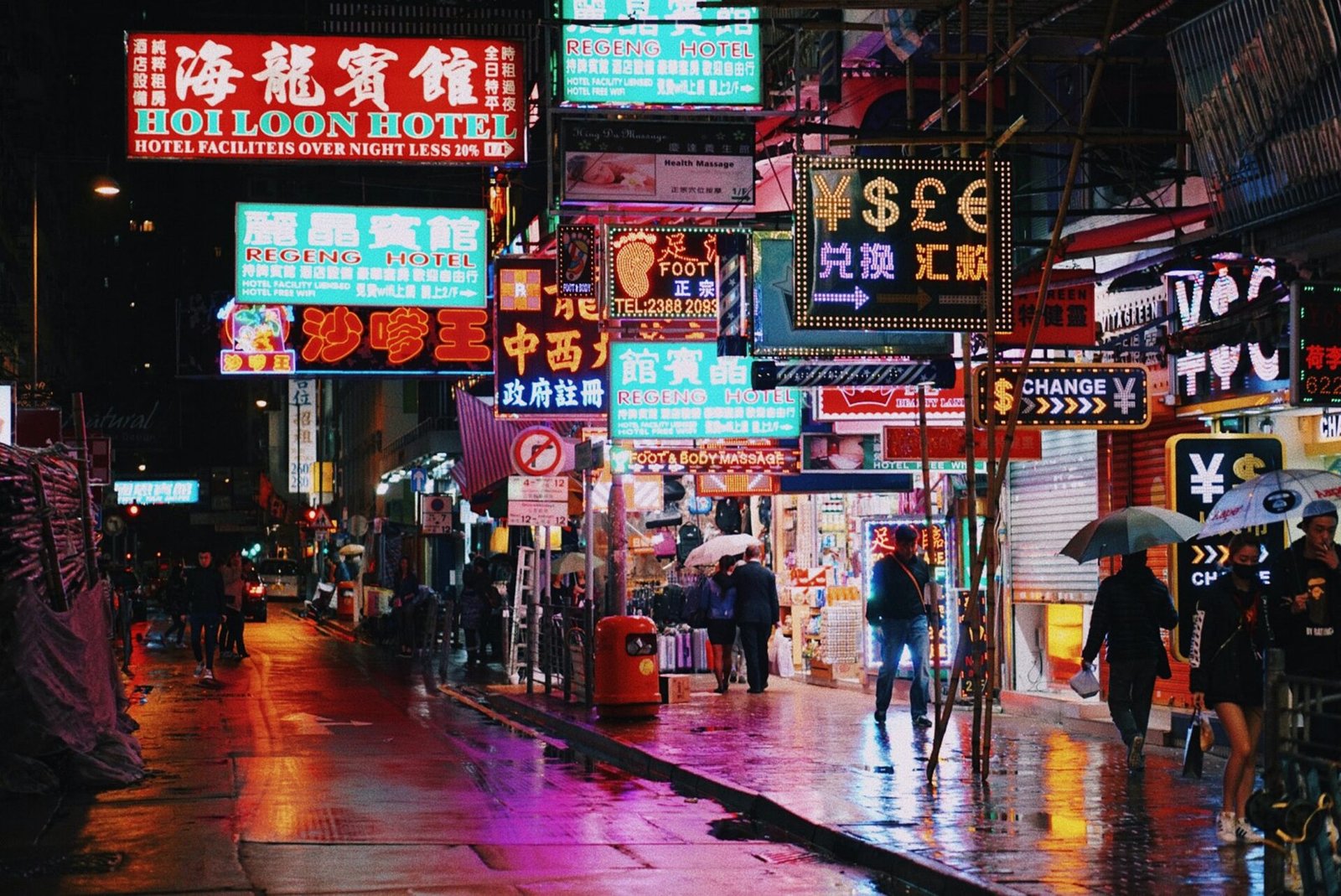Hong Kong is one of the most densely populated cities in the world, with over 7 million people living in just 1,104 square kilometers. Despite its small size, Hong Kong is a major global financial center and is home to some of the tallest skyscrapers in the world, including the International Commerce Centre and Two International Finance Centre.
Hong Kong is also known for its vibrant food culture, with everything from Cantonese Dim Sum to fiery Sichuan cuisine on offer. The city’s unique mix of East and West influences can be seen in everything from its architecture to its art scene, making it an incredibly diverse and exciting place to live. Whether you’re exploring its bustling markets or taking in the sweeping skyline, Hong Kong is a city that always has something new to discover.

If you’re planning on visiting Hong Kong on a budget, here are 10 tips to help you make the most of your trip:
1. Plan your accommodation in advance: Hong Kong is a popular tourist destination, so hotels can fill up quickly and prices can be high. If you’re on a tight budget, consider staying in a hostel or guesthouse. There are many options available, and booking in advance will ensure you get the best price.
2. Take advantage of cheap public transport: The Mass Transit Railway (MTR) is an efficient and affordable way to get around Hong Kong. A single journey costs just a few Hong Kong dollars, and there are discounts available for multiple journeys. If you’re planning to do a lot of sightseeing, consider buying a Tourist Day Pass, which allows unlimited travel on the MTR for one day.
3. Walk where possible: Not only is walking a great way to explore Hong Kong’s many neighborhoods, but it’s also free! When sightseeing, try to walk as much as possible to save money on transport costs.
4. Eat like a local: One of the best things about Hong Kong is its food culture. There are countless delicious and affordable places to eat, so make sure you try as many local dishes as possible. From street food to Michelin-starred restaurants, there’s something for everyone.
5. Visit during off-peak times: If you can, try to visit Hong Kong during shoulder or low season. Prices for accommodation and flights are typically lower, and you’ll avoid the crowds.
6. Shop at local markets: Hong Kong is famous for its markets, where you can find everything from electronics to souvenirs. Bargaining is expected, so make sure you haggle for the best price.
7. Take advantage of free attractions: There are many free things to do in Hong Kong, from visiting temples to exploring parks. Take advantage of these activities to save money on your trip.
8. Look for discounts and coupons: If you’re planning to do a lot of shopping, look for discount coupons before you go. You can often find these in tourist brochures or online.
9. Avoid tourist traps: There are many overpriced tourist traps in Hong Kong, so it’s important to do your research before you go. Ask locals for advice on where to eat and drink, and avoid places that seem too touristy.
10. Save on souvenirs: If you’re looking for souvenirs, head to a local market instead of a tourist shop. You’ll find better-priced items, and the experience will be more authentic.

How much would a trip to Hong Kong cost?
A trip to Hong Kong can be quite affordable if you plan ahead and take advantage of discounts and coupons. A basic budget for accommodation, food, and transport would be around $50-$60 per day. However, if you plan to do a lot of sightseeing or shopping, your costs will increase. A more comprehensive budget for a 5-day trip would be around $2000. This includes flights, accommodation, food, transport, and activities.
How much money is enough for living in Hong Kong?
In Hong Kong, the cost of living is one of the highest in the world. For many people, the question is not how much money is enough, but how to make ends meet. The high cost of housing, food, and transportation can make it difficult to save money, let alone make major purchases. In addition, the high cost of living can put a strain on personal relationships. It is not uncommon for people to work long hours and neglect their family and friends to earn enough money to cover their expenses. As a result, the question of how much money is enough in Hong Kong is a complex one without easy answers.
What is the best time of year to visit Hong Kong?
The best time of year to visit Hong Kong depends on what you’re looking for. If you’re interested in experiencing the city’s vibrant nightlife, then the best time to visit is during the summer months when the weather is warm and mild. However, if you’re looking to avoid the crowds, then autumn or winter may be a better choice. In short, there is no wrong time to visit Hong Kong – it just depends on what you’re looking for!
What are some tips for avoiding overpriced tourist traps in Hong Kong?
First, do your research in advance. Read online reviews and forums to get an idea of what activities are worth your time and money. Second, be wary of touts who approach you on the street offering discounts on tours or tickets. In most cases, these deals are not saving you any money. Third, avoid purchasing souvenirs from high-end stores. There are plenty of markets and street stalls where you can find affordable trinkets and gifts. Finally, remember that haggling is expected in Hong Kong. Don’t be afraid to bargain with shopkeepers and tour guides to get the best possible price.
Where can I find souvenirs in Hong Kong?
While souvenir shopping is certainly one of the city’s highlights, it can be overwhelming for first-time visitors. To make the most of your Hong Kong shopping experience, start by exploring some of the city’s major markets. For example, the Ladies’ Market in Mongkok is famed for its cheap clothing and accessories, while the Jade Market is the place to go for quality jade jewelry. If you’re looking for antiques or art, head to Hollywood Road in Central, where you’ll find a range of dealers selling everything from Ming vases to calligraphy scrolls. With so many options to choose from, you’re sure to find the perfect souvenir to take home from Hong Kong.
How safe is Hong Kong?
Hong Kong is often considered a safe city and compared to other major metropolitan areas, it has a low crime rate. However, there are still some safety concerns to be aware of. Pickpocketing and petty theft are common, so it’s important to keep an eye on your belongings when out and about. There have also been reports of fake taxis and scams, so it’s best to use only licensed taxis and be aware of your surroundings. In general, as long as you take precautions and use common sense, you should be safe in Hong Kong.

What is considered rude in Hong Kong?
There are a number of things that are considered rude in Hong Kong. For example, it is considered impolite to blow your nose in public, and it is also rude to step in someone’s shadow. It is also considered bad manners to slurp your soup, and it is considered very rude to talk with your mouth full. In addition, it is considered very disrespectful to point at someone, and it is also considered bad manners to interrupt someone when they are speaking.
Do they speak English in Hong Kong?
The official language of Hong Kong is Chinese, specifically Cantonese. However, English is also widely spoken, particularly in business and government circles. In fact, English is one of the two official languages of Hong Kong, along with Chinese. This means that all government documents are available in both languages, and court proceedings can be conducted in either language as well. As a result, there is no need to worry about not being able to communicate while in Hong Kong.
Can you drink the water in Hong Kong?
Hong Kong’s water quality is generally very good. The Drinking Water Safety Ordinance sets high standards for the quality of drinking water, and the Water Supplies Department works to ensure that these standards are met. However, it is always advisable to check the latest water quality report before drinking any tap water. Hong Kong’s water comes from a variety of sources, including rivers, reservoirs, and groundwater. To ensure safety, all of this water is treated with a process called coagulation-flocculation-sedimentation. This removes any dirt or other impurities from the water before it is sent to homes and businesses. As a result, the vast majority of people in Hong Kong can drink tap water without any problems.




